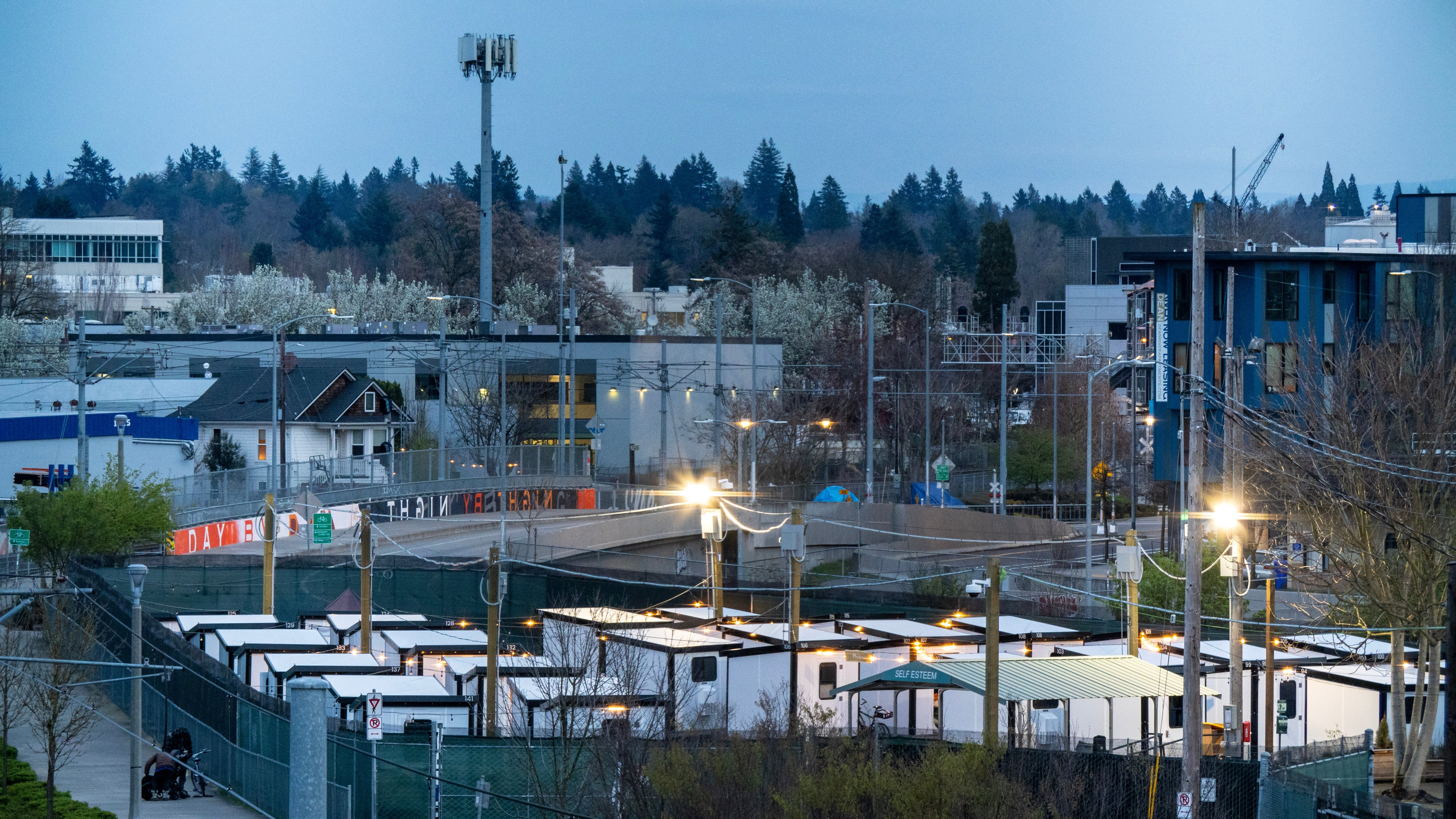In June, the city of Portland posted on its website a good neighbor agreement signed by the Multnomah Safe Rest Village and surrounding residents.
The document was the result of two and a half years of discussions among the city, the Joint Office of Homeless Services, the SRV operator Sunstone Way, the Multnomah neighborhood and others to establish a shared understanding of how the pod village would affect those living nearby.
The completed agreement was remarkable—for how long it took, but also because it was inked at all.
WW first reported on disputes over good neighbor agreements last year (“Handshake Deals,” May 31, 2023).
While the agreements are not legally binding, they have been key to communication and collaboration among the city, the neighborhoods and the shelters they now host. For many residents, the agreements bring peace of mind and a procedure to follow in case there is a problem.
“It’s not just communicating the problems, but it’s resolving the problems that are communicated.” says Chris Eykamp, chair of the Hosford-Abernethy Neighborhood Association.
Between them, Portland and Multnomah County now operate eight outdoor tiny home villages of varying size, shape and services.
Two of them, the BIPOC and Sunderland RV Safe Park villages, are relatively isolated from residential neighborhoods and sparked no local campaign for a good neighbor agreement. Three have either signed an official GNA or are in the process of doing so. The remaining three are still in talks. Here’s where the latter six stand:
Multnomah
The Multnomah pod village began operating in the summer of 2022, the first in the city’s initiative. It is now being expanded from 30 units to around 100. GNA negotiations started around the time the camp opened, but Multnomah Neighborhood Association president Moses Ross says the push for the camp’s expansion brought renewed energy to the negotiations. The document was finalized in June.
Negotiations initially stalled over the neighborhood’s desire for criminal background checks on village residents. They didn’t get their wish.
“What we were able to achieve was accountability,” says Ross, who is also a candidate for City Council. “Now we have a communication pathway to express our concerns and to mitigate some of the issues that come up.”
Clinton Triangle
It’s the city’s first large-scale site, with 160 units. Size wasn’t an obstacle: The GNA negotiations for Clinton Triangle were speedy compared to the others. Eykamp says stakeholders were given concessions like an expanded no-camping perimeter they hadn’t even asked for in their initial meeting.
The neighbors’ top concern, Eykamp says, is the possibility of the village being transferred to Multnomah County’s jurisdiction, a government that was not involved in the GNA negotiations.
Reedway
The Reedway Safe Rest Village began operating in July 2023. It started with 60 units and is now scheduled to be expanded to 120, which would make it the second-biggest of the tiny house pod shelters.
Community organizations Lents Strong! and the Lents Neighborhood Livability Association say the GNA is being distributed to stakeholders for signature. That would make it the third to be finalized.
Queer Affinity
Queer Affinity Village has 35 units and is run by the county, which describes it as an alternative shelter and tailors it to housing LGBTQ+ people. It’s not near any major residential areas but does lie in close proximity to two schools: the International School of Portland and Bridges Middle School.
So the campaign for a good neighbor agreement for Queer Affinity wasn’t led by a neighborhood association but by school administrators. Last summer, talks had stalled over the schools’ request for background checks, but the schools and the county say the end of negotiations is in sight.
Julia Comnes, a spokeswoman for the Joint Office of Homeless Services, says the lack of a GNA hasn’t hampered Queer Affinity, but “we all believe this is a good time to gather all parties back around the table to complete and formally sign it.”
Menlo Park
The Menlo Park SRV opened in the fall of 2022 and initially summoned neighborhood hope that it would reduce unsanctioned camping, says Ann McMullen, land use committee chair for the Hazelwood Neighborhood Association. But GNA negotiations have since broken down, and the neighborhood association has walked away from the table.
Neighbors wanted an extended no-camping perimeter and to grant homeless Hazelwood residents priority in getting into the local camp. No dice.
“If the agreements in the GNA are not going to be enforced, then it’s performative and what’s the point?” McMullen says.
Bryan Aptekar of City Shelter Services says the city tried to address neighbors’ concerns. “Ultimately, they were not satisfied that we were able to address these issues in the surrounding neighborhood,” Aptekar says. “That is true.”
Peninsula Crossing
The city began operating this village last May. The University Park Neighborhood Association, which was involved in initial GNA negotiations, has offered few details about them.
The land hosting the Peninsula Crossing SRV is owned by the Portland Housing Bureau and is slated for affordable housing. That project, led by Habitat for Humanity, is due to start next year—meaning the camp would have to pack up sometime in the spring of 2025.
“The University Park Neighborhood Association sought but did not enter into a good neighbor agreement with the city, but it wasn’t for lack of trying,” association chair Thomas Karwaki wrote via email.
Aptekar says he was unaware Karwaki wanted to rekindle discussions. “We will follow up with him to discuss his interest in this.”
